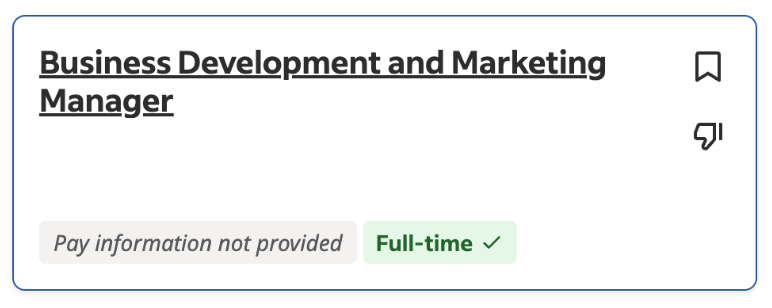A Job Listing Without the Salary is Like a Restaurant Without a Menu; A New Vermont Law Changes That
Any employer with five or more employees must disclose the minimum and maximum annual salary or hourly wage for a position in any written job posting.
For decades, the job search in Vermont has involved a certain level of guesswork. Applicants spend hours tailoring resumes and preparing for interviews, often without knowing the most fundamental detail of the arrangement: how much the job actually pays. It’s a practice that has been likened to being handed a restaurant menu with no prices, leaving the customer to wonder if they can afford to even place an order.
But starting next week, that all changes.
On July 1, 2025, a new state law, H.704, goes into effect, ushering in an era of pay transparency across the Green Mountain State. The law, signed by Governor Phil Scott last year, requires most Vermont employers to include a "good faith" salary range in all written job advertisements. The move is being hailed by supporters as a critical step toward closing the gender and racial wage gaps and empowering workers.
The core of the legislation is straightforward: any employer with five or more employees must disclose the minimum and maximum annual salary or hourly wage for a position in any written job posting. This applies to roles physically located in Vermont as well as remote positions that report to a Vermont-based office.
For tipped jobs, the employer must post the base hourly wage range. For commission-based roles, the advertisement simply needs to state that compensation is commission-based.
A Sigh of Relief for Job Seekers
For Vermonters on the job hunt, the law is a welcome change.
“It’s a game-changer,” says Sarah Johnson, a Burlington-based marketing professional who recently navigated the job market. “You invest so much emotional energy into an application. To go through multiple interviews only to find out the salary is thousands less than you can afford to live on is incredibly disheartening. Knowing the range upfront respects the applicant’s time and allows us to focus on jobs that are a genuine fit.”
This sentiment is echoed by career counselors across the state, who see it as a tool to streamline the hiring process for both sides.
“This removes the awkward dance around salary expectations,” notes a career advisor at a Vermont workforce development agency. “It allows for more substantive conversations about skills, experience, and how the candidate can contribute, rather than a negotiation shrouded in secrecy. It empowers job seekers to know their value and pursue opportunities that truly meet their financial needs.”
How Will Businesses Adapt?
The law has prompted many Vermont businesses to proactively review their compensation structures. While some business groups initially expressed concerns about the administrative burden, the year-long lead-up to the effective date has provided time to prepare.
The Vermont Attorney General's Office, which is tasked with enforcing the new rules, has published guidance to help employers comply. The guidance clarifies that the posted range must be a "good faith" estimate at the time of posting, though it doesn't prevent an employer from hiring someone for more or less than the advertised range based on unanticipated factors like a candidate's exceptional qualifications.
Crucially, the law includes strong anti-retaliation protections. An employer cannot refuse to interview, hire, or promote someone simply because they exercised their rights under the new statute. While there are no specified fines for initial non-compliance, the Attorney General can bring civil action against employers who violate the law.
Supporters argue that the benefits for businesses will ultimately outweigh the initial adjustments.
As of July 1, the era of the price-less menu for jobs in Vermont is over. For job seekers, it means less mystery and more power. For employers, it's a call to ensure their pay is not just competitive, but equitable and transparent for all.




